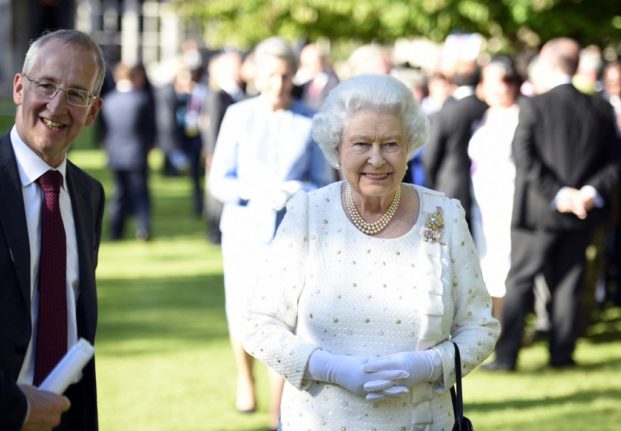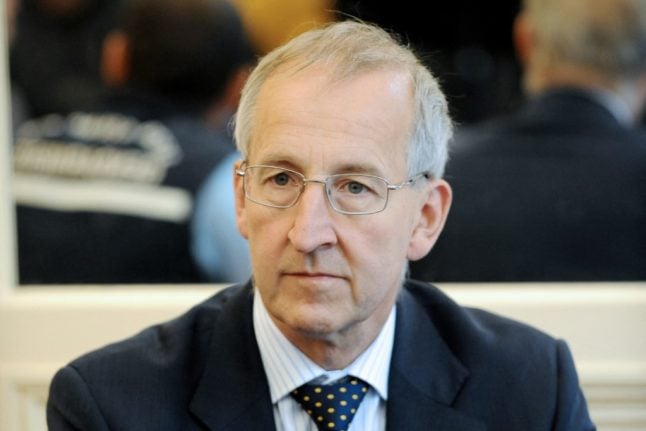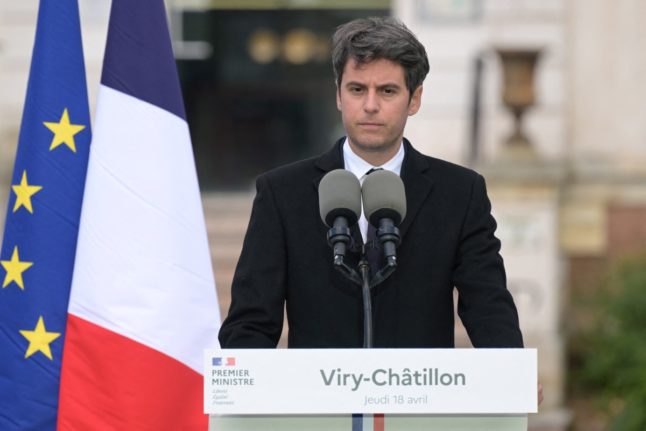The Local spoke to Peter Ricketts, who served as British Ambassador to France between 2012 and 2016, at an event organised by the Anglo-American Press Association of Paris where he shared his views on Brexit, future negotiations and Britain’s place in the world.
And on the subject of the rules for UK nationals either living in the EU or visiting regularly his message was a stark one – the current arrangement is the “high water mark” and unlikely to be improved upon.
He said: “I cannot see this government using time or negotiating capital on these issues, I think that the rights of expats are not a priority for either the UK government or EU governments.
“The agreements that are in place now are the high water mark.”
Brits who were living in the EU before December 31st 2020 are covered by the Withdrawal Agreement, which offers wide-ranging guarantees that they can stay in the countries that they call home, although those living in France need to apply for a residency card.
However the Withdrawal Agreement is not an exact replica of the rights granted as a citizen of an EU country and does not cover issues like freedom to move to a different EU country or voting rights.
READ ALSO Brexit Withdrawal Agreement – what is it and does it cover me?

Brits who do not live in France are now subject to Third Country National rules (the same rules previously in place for other non-EU nationals like Americans, Canadians and Australians) which restrict stays to 90 days or less and requires visas for longer stays.
Brits wishing to work in EU countries now need work permits for many jobs, and visas if they are planning to work for more than 90 days.
READ ALSO How can British second-home owners spend longer than 90 days in France?
There are several petitions and campaigns in place calling for a relaxation for these rules – especially around the 90-day rule which has had a big impact on second-home owners from the UK, who had become used to spending long periods in their French properties without having to worry about visas.
However, Lord Ricketts said he thought it was “unlikely” that these would be effective, adding that the UK government was likely to prioritise its negotiating time for trade and security talks, rather than the rights of second-home owners.
The Ambassador retired from the diplomatic service in 2016, but now sits in the House of Lords as a life peer and acts as a consultant to defence firm Lockheed Martin.
Giving his impression of the Brexit negotiations, he said: “I think we were all surprised at what a hard Brexit it was in the end, and how the deal was left to the very last days of December and just how badly prepared the UK government was, particularly in relation to the protocol around the Irish border.”
He said he feared a “very bad, adversarial relationship” between the UK and the EU, but added that the UK and France had better bilateral relations thanks to close military co-operation and a 50-year treaty regarding nuclear co-operation.
And those hoping for a better relationship between the UK and the EU might have to wait 10-15 years for the next generation of British politicians, according to Lord Ricketts.
He said: “I don’t believe that the generation that has grown up with Easyjet, Eurostar and Erasmus will be satisfied with a distant relationship with the EU, I think they will want to move closer when they take power in 10 or 15 years. That’s when the relationship will reset.”
Peter Ricketts’ book Hard Choices: Britain and the New Geometry of Global Power is published on May 13th.



 Please whitelist us to continue reading.
Please whitelist us to continue reading.
This Statement is great, however it does not address the problem of driving licenses for residents living in France. What is happening with the process of transferring my UK driving licence to a French one before the end of the year. I have seen nothing in the UK Gouv WEB site to see this is even being addressed and the above statement confirms this.
Totally unsatisfactory support after promises from the UK Gouv that all would be sorted out!!!
It could be worse. You might be iving in N Ireland.
Peter Ricketts is dead right: this is as good as it is going to get for British immigrants in France, for at least a generation.
Unless…we win at the ECJ to retain (or regain) EU citizenship.
What a contrast between Lord Ricketts’ clarity of thinking and that of the current ambassador Ed Llewellyn who, to be frank, is about as much use as a chocolate teapot, David Cameron’s right hand man and similarly useless.
The current BA has to toe the ‘party’ line & reflect British policy – that’s how it works – he’s still a diplomat. However Lord Ricketts has retired & as such can now say it as he sees it.
There’s a world of difference between the two. Ricketts was a career diplomat, joing the FCO in 1974 and staying there until 2016. He was also the first National Security Adviser and Head of the Joint Intelligence Committee. Llewellyn by contrast was a career gofer for various Tories, starting out in the Research Department (1988-1993, the same time as Cameron and Osborne), Thatcher’s PS during her final year as PM, then working for Chris Patten in HK and elsewhere and finally Cameron’s Chief of Staff from 2005 to 2016. His appointment to Paris was a farewell present from Cameron, comparable to the various favours he dished out to his entourage of cronies and gofers when he did a runner from his reponsibilities following the referendum, presumably because EL’s wife is French. That appears to be his only qualification for the post.
I’ve heard him speak and followed his ‘career’ while ambassador: like his former boss he’s glib and fatally complacent.
Interestingly, EL can be seen in the background of some of the photos of Margaret Thatcher’s ‘moment’ outside the Paris Embassy in November 1990 when she and Bernard Ingham barged John Sergeant of the BBC aside to announce that she would ‘fight on…. to win’. Sergeant had his back to the door and didn’t see her coming, but all the while his camera crew were audibly shouting ‘Behind you! Behind you!’ at him, like over-excited children at a matinée performance of Aladdin. I recall watching this live on the TV in the bar of the India Club at the Aldwych, having just emerged from the gents’ toilets, and being unable to believe my eyes such was the surreal nature of it all. My now wife and I were on our way to a Victoria Wood performance nearby but the comedy seemed much richer in Paris.